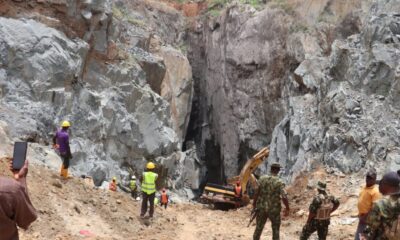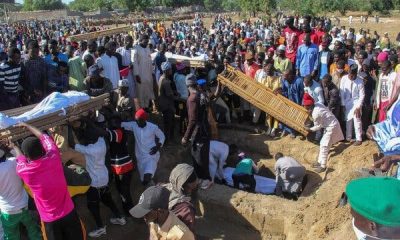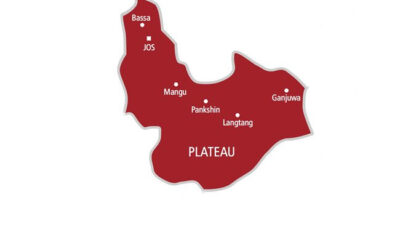Gov. Simon Lalong of Plateau says his administration will not enact the controversial anti-grazing law in the state, as grazing areas for cattle ranching have yet to be developed.
The governor said this on Thursday when he fielded questions from State House correspondents after a closed-door meeting with President Muhammadu Buhari in the Presidential Villa, Abuja.
Lalong said that he had earlier advised the governors of Taraba and Benue against implementing the anti-grazing law in their respective states, even though ranching remained the only way to guarantee peaceful farmers-herdsmen coexistence in the country.
“When the governor of Benue was doing the law, I told him: `Just be careful, take other steps before you start implementation’.
“But he said that states are different, that his own concept is different and for us in Plateau, it is different. I said I will not do the law before the implementation of certain things.
“I have not seen rangers; I have not yet developed the ranching areas. So, I cannot go and say I put up a law to stop who? If I stop people (herdsmen), what is the alternative?’’ he asked.
On the concept of cattle colonies, being advocated by the Federal Ministry of Agriculture and Rural Development, Lalong said that he had been convinced of the usefulness of the concept by the ministry.
He said that the state government had already earmarked two large areas as sites for the grazing of domestic animals in the state.
He, therefore, expressed the hope that the creation of cattle colonies would check the persistent farmers-herdsmen conflicts across the country.
On the forthcoming local government elections in Plateau, the governor pledged that his administration would not interfere in the conduct of party primaries so as to ensure free and fair elections.
Lalong, who announced that President Buhari would be visiting Plateau in February, thanked him for his intervention via the disbursement of bailout funds to states.
He said that the payment of salary to workers in Plateau was no longer an issue, as all outstanding salaries had been settled by his administration.
“For me, workers’ salary is no longer an issue in Plateau state. We paid their salary up to date. Last December, I started paying gratuities.
“My administration inherited 11 months of understanding salary; now, workers’ salary is no more an issue. I inherited eight months of outstanding pensions and today, we are no more owing,’’ he said.
Gov. Samuel Ortom of Benue, in an interview with State House correspondents on Tuesday, reiterated that in spite of the deepening crisis and loss of lives in the state, cattle ranching remained the only way out of the crisis.
Ortom said: “For us, the way forward is ranching and up till this time I am talking to you, the way forward is ranching because it is the global best practice.
“It is not just the practice in other parts of the world; it is also the practice in African countries like Swaziland, South Africa, Kenya, Tanzania and Mozambique, among others; they all engage in cattle ranching.
“That is the right way to go and since we started implementing the anti-grazing law, there has been relative peace among farmers and herdsmen.’’
The Presidency, via a statement on Tuesday, said that it would be organizing a stakeholders’ conference to find short-term and long-term solutions to the frequent conflicts between farmers and herdsmen across the country.




























